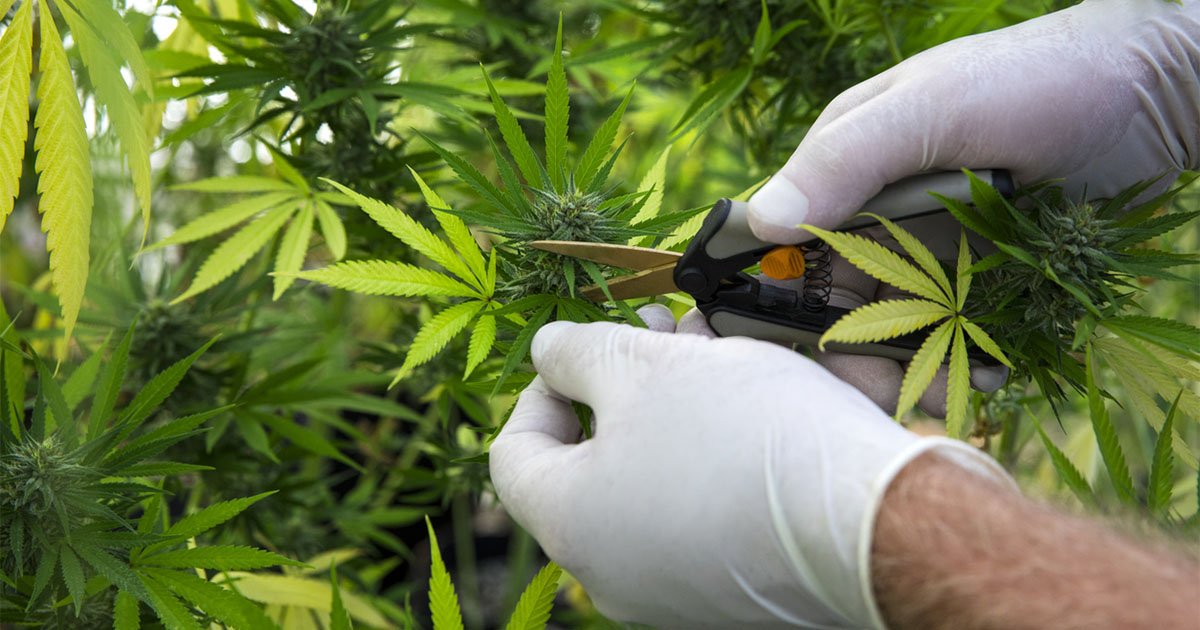Last November, the University of Minnesota School of Public Health (SPH) launched a new Cannabis Research Center (CRC). The center was established by the Minnesota Legislature after legalizing adult-use cannabis in Minnesota, with the goal of leveraging the UMN’s research infrastructure to track how cannabis is used, and its health effects on different Minnesota populations and communities. SPH Professor Traci Toomey, the CRC’s inaugural director, answered questions about the CRC and the research it will conduct.
Question: Many other states have already legalized cannabis. Are there any cannabis-related public health issues that you see as unique to Minnesota?
Prof. Toomey: Minnesota is the 23rd state to legalize cannabis for adult use, but each state’s cannabis legislation is unique. Minnesota is considered particularly unique in how it is approaching the sales of hemp-derived, lower-potency cannabis products (e.g., edibles, beverages). In 2022, the legislature allowed these products for sale in a wide variety of businesses (e.g., convenience stores, breweries, restaurants) throughout the state without a licensure structure. Moving forward, full-potency cannabis products are expected to be sold at dedicated licensed cannabis retail outlets in 2025. The hemp-derived, lower-potency cannabis products will continue to be available in a wide variety of businesses, but they will be required to have a license to sell these products. The implications for public health of having these lower-potency cannabis products being widely available as the higher potency products are also legally sold in retail outlets is not yet known. The CRC will conduct research to examine the public health effects of the hemp-derived cannabis products as well as the full-potency cannabis products.
Question: Will the CRC investigate how cannabis legalization impacts communities historically affected by disparities in legal consequences for cannabis?
Prof. Toomey: A major focus of the CRC will be on how the Minnesota cannabis legislation affects people and communities who have been disproportionately harmed by past cannabis laws and enforcement, particularly Black and Indigenous communities. The Minnesota legislation includes many provisions designed to address these past inequities, such as prioritizing cannabis retail licenses to people who’ve been disproportionately harmed by past cannabis laws and requiring automatic expungement of certain prior cannabis-related records. The CRC hopes to examine the effects of these legislative components. We will create a community advisory group to help shape this research.

Question: Will the CRC’s research focus on how cannabis legalization affects varying age groups such as younger people or older people?
Prof. Toomey: Yes. For example, research in other states has found an increase in calls for poison control and emergency room visits for young children who have accidentally consumed cannabis edibles. The CRC will assess effects of legalization of cannabis on emergency room visits in Minnesota, including for children.
People under age 21 have a higher risk for negative outcomes related to cannabis use, including progression to a cannabis use disorder and mental health issues. As a result, all states, including Minnesota, that have legalized cannabis for non-medical use have prohibited cannabis use for individuals under age 21. The CRC will assess effects of cannabis legalization on underage people and conduct research on how to prevent access to and use of cannabis by underage youth.
Questions have also been raised about the potential effects of cannabis use among older adults, particularly among those who also use prescription drugs. The effects of an interaction between cannabis and different types of prescription drugs is not known. The CRC is working to identify data sources that can help answer questions about the positive and negative health effects of cannabis use among older adults.
Question: Will the CRC be looking at the ways that cannabis might impact rural Minnesotans differently than people who live in the metro area?
Prof. Toomey: The CRC is very interested in this question. It will be important to study whether people in rural parts of the state who may use cannabis for health benefits have access to cannabis. Other areas of study include examining potential differences in practices of retail outlets (e.g., preventing sales to underage individuals) in rural vs. urban areas, as well as assessing whether the potential negative effects of cannabis legalization (e.g., traffic crashes) are more or less common in some rural communities.
Question: You’ve previously done a lot of research on alcohol and public health. What are the similarities or differences you see between alcohol’s impact on public health versus cannabis’ impact on public health?
Prof. Toomey: One salient issue for both substances is preventing access to underage individuals. Many of the strategies found to be effective for preventing underage access to alcohol (e.g., compliance checks to prevent stores from illegally selling cannabis to youth) are likely to be effective for cannabis. Similarly, a major focus of both alcohol and cannabis research is on reducing intoxicated driving. A challenge however is that breathalyzer tests are a valid measure of a driver’s alcohol intoxication, while there is currently no comparable test for cannabis intoxication. Another difference between alcohol and cannabis is while research has identified many negative public health effects associated with alcohol, we recognize that cannabis may have both positive and negative public health effects.
Question: Who will the CRC be sharing its findings with?
Prof. Toomey: The CRC will actively share research findings with the state legislature, local elected officials, public health agencies, and the general public. We are currently exploring different ways that we can effectively communicate the research conducted by the CRC as well as relevant research conducted by others in Minnesota or in other states.
###
Profesor Toomey is a public health policy expert with a particular focus in substance use control policies. She has served as the principal investigator or co-investigator of nearly 40 externally-funded research studies focusing on substance use, and been a leader on a series of studies assessing and/or changing the alcohol, cannabis, and tobacco retail environments. In addition to her role with the CRC, Toomey is also the director of the UMN Alcohol Epidemiology Program, one of the leading research groups studying effects of alcohol policies on public health harms.

